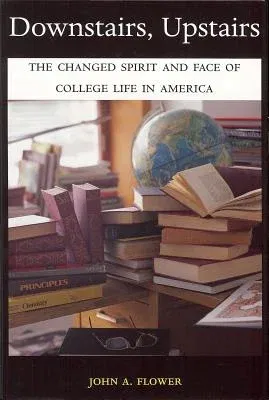Money and privilege no longer describe college students who, books in
hand, stroll across fair campuses. Changes in American college life
since the 1960s make the previous 300 years-from the founding of Harvard
in 1636-benign by comparison. Today, universities in gritty downtowns
admit welfare mothers who struggle to escape grinding poverty. Sometimes
they have to take their babies to class with them. Felons from prison
enroll through special programs hoping for training that will enable
them to surmount previous misdeeds. Men and women in low-paying jobs
enroll part-time. They head families, struggle with car and rent
payments, and are always tired. But they attend college classes,
struggling to stay awake, preparing themselves for better jobs. John A.
Flower takes us on an extraordinary professional and personal odyssey in
this new book. As dean at Kent State University he was engulfed in the
Vietnam War protests and witnessed the shattering events of May 4, 1970.
During 20 years as vice president, then president, of Cleveland State
University he was the target of racial protests that took place on
campus. At the same time a lurid scandal involving the high-profile
basketball coach required Flower to dismiss him. For more than 50 years
he participated from the inside as profound changes across the nation
caused ivory towers to crumble. Flower writes eloquently and powerfully,
helping readers to understand how forces for change reshape colleges and
universities. He illustrates how external special-interest groups
influence campus affairs, and analyzes their influence on curriculum,
affirmative action, contract issuance, land acquisition, unionism, and a
multitude of other issues. He uses his experience to present ways in
which concerned citizens and community leaders can address change in
positive ways. Downstairs, Upstairs is a must-read for all Americans who
recognize the imperative for higher learning.

